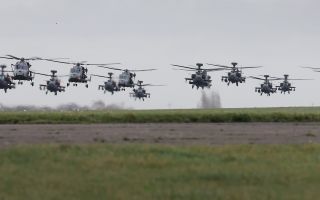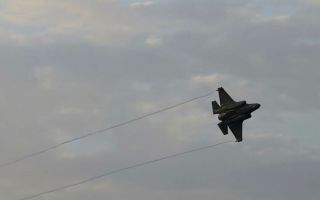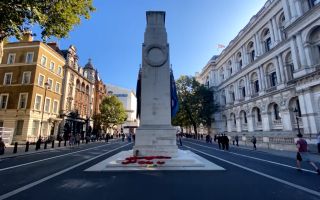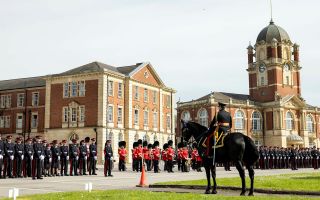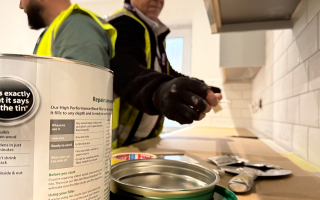Tri-Service
Could British Troops Be At Risk Of Chemical Attack From IS?
100 years after the first chemical weapons were used in anger in Flanders Fields and throughout the First World War, investigations are taking place as to whether ISIS has used chemical weapons of their own.
According to officials, Kurdish troops suffered breathing difficulties after an attack near the city of Irbil earlier this week.
That's near where British military personnel, training Kuridish Peshmerga in the fight against IS, are based.
Claims that the terror group deployed mustard agent against Kurdish forces in northern Iraq surfaced recently, as the US mounts a probe into the alleged attack.
More From Forces TV: UK Throws Its Military Weight Behind Kurdish Peshmerga
Alistair Baskey, a spokesman for the White House's National Security Council, said the US was taking the allegations "very seriously" and seeking more information about what happened. He noted that IS had been accused of using such weapons before.
"We continue to monitor these reports closely and would further stress that any use of chemicals or biological material as a weapon is completely inconsistent with international standards and norms regarding such capabilities," he said.
Kurdish officials said their forces, known as peshmerga, were attacked on Wednesday near the town of Makhmour, not far from Irbil. Germany's military has been training the Kurds in the area and the German Defence Ministry said some 60 Kurdish fighters suffered breathing difficulties from the attack - a tell-tale sign of chemical weapons use. But neither Germany nor the Kurds specified which type of chemical weapons may have been used.
Confirmation of chemical weapons use by IS would mark a dramatic turn in the US-led effort to rout the extremist group from the roughly one-third of Iraq and Syria that it controls.
Although the US and its coalition partners are mounting air strikes against the Islamic State, they are relying on local forces like the Kurds, the Iraqi military and others to do the fighting on the ground. Already, those forces have struggled to match the might of the well-funded and heavily-armed extremist group.
At the United Nations, US ambassador Samantha Power said her country was speaking with the Kurds who had made the allegations to gather more information. She said that if reports of chemical weapons were true, they would further prove that what IS calls warfare was really "just systematic attacks on civilians who don't accord to their particularly perverse world view".
"I think we will have to again move forward on these allegations, get whatever evidence we can," Ms Power said.
She added that as a result of earlier chemical weapons use by the Syrian government, the US and its partners now have advanced forensic systems to analyse chemical weapons attacks. She said anyone responsible should be held accountable.
Similar reports of chemical weapons use by IS had surfaced in July. But it is unclear exactly where the extremist group may have obtained any chemical weapons.
Following a chemical weapon attack on a suburb of the Syrian capital of Damascus in 2014 that killed hundreds of civilians, the US and Russia mounted a diplomatic effort that resulted in Syrian president Bashar Assad's government agreeing to the destruction or removal of its chemical weapons stockpiles.
But there have been numerous reports of chemical weapons use in Syria since then - especially chlorine-filled barrel bombs. The Organisation for the Prohibition of Chemical Weapons, the global chemical weapons watchdog, has been investigating possible undeclared chemical weapons stockpiles in Syria.
Word of the White House's probe into possible chemical weapons use by IS came as President Barack Obama was on holiday with his family in Martha's Vineyard in Massachusetts.
Meanwhile, IS militants claimed responsibility for a truck bombing at a Baghdad market that killed 67 people in one of the deadliest single attacks there since the Iraq War.
An MOD spokesperson looked to reassure those concerned:
"All military personnel are appropriately prepared prior to deployment and are provided with suitable equipment in theatre. All military bases have appropriate Force Protection measures in place for local protection".


